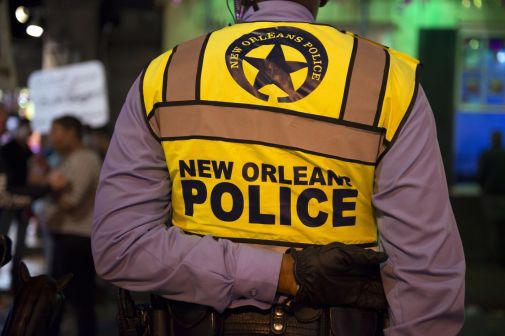More state legislatures are scrutinizing facial recognition technology
Lawmakers in California are considering legislation that would crack down on the use of facial recognition software by law enforcement, joining several other states also weighing limitations to the controversial technology.
The California Senate Public Safety Committee is scheduled to hold a hearing Tuesday on a bill that would impose a statewide prohibition against the use of facial recognition software on footage collected by police officers’ body-worn cameras. Such a move would follow action taken last month by officials in San Francisco, which approved a citywide ban on the technology for nearly all local government agencies.
Critics argue that facial recognition tools disproportionately misidentify women and non-whites, while research by the National Institute of Standards and Technology has found that some demographic groups “are more susceptible to errors in the face matching process.”
But California’s statewide measure, Assembly Bill 1215, is drawing criticism from law enforcement. In a statement to the Public Safety Committee, the Riverside County Sheriffs’ Association accused supporters of the ban of placing an undue burden on facial recognition that is not applied to other forms of technology.
“Californians do not have a history of banning technology until it is perfected,” the statement read. “Could any of us imagine a statutory ban on Microsoft Office or Apple’s iOS until the software was able to be certified as 100% flawless?”
But civil-liberties activists backing the bill argue that continuing to allow police to run body-cam footage through facial recognition software will have a chilling effect.
“The utilization of face recognition technology in connection with police body cameras would force Californians to decide between actively avoiding interaction and cooperation with law enforcement, or having their images collected, analyzed, and stored as perpetual candidates for suspicion,” states a press release from the Electronic Frontier Foundation, which will testify in support of the bill on Tuesday.
Bills that would restrict the use of facial recognition tools have also come forward in least seven other state legislatures this year, according to the Security Industry Association, including New York, Texas, Washington and Massachusetts, though none have yet reached a governor’s desk. The Massachusetts bill has been praised by privacy advocates who point out that it would place a moratorium not just on facial recognition, but on other forms of biometric identification, including voice recognition and gait analysis.
“Do we need to be talking beyond facial analysis technologies? Absolutely,” Joy Buolamwini, founder of the Algorithmic Justice League, recently told members of Congress, which has taken an interest in investigating facial recognition platforms as it considers federal regulation.
At the state level, though, lawmakers urging bans on facial recognition might be getting ahead of the nation’s more cautious governors. Massachusetts Gov. Charlie Baker said Monday he’s deferring to the federal government when it comes to placing rules on the technology, the Boston Herald reported.
Providers of facial recognition technology, such as Amazon, also favor a national framework. Amazon’s Rekognition service has attracted criticism for its use by a handful of police departments around the United States. Andy Jassy, the chief executive of Amazon Web Services, said Monday at Recode’s Code Conference that the federal government should “hurry up” on creating regulations.
“Otherwise, you’ll have 50 different laws in 50 different states,” Jassy said.






